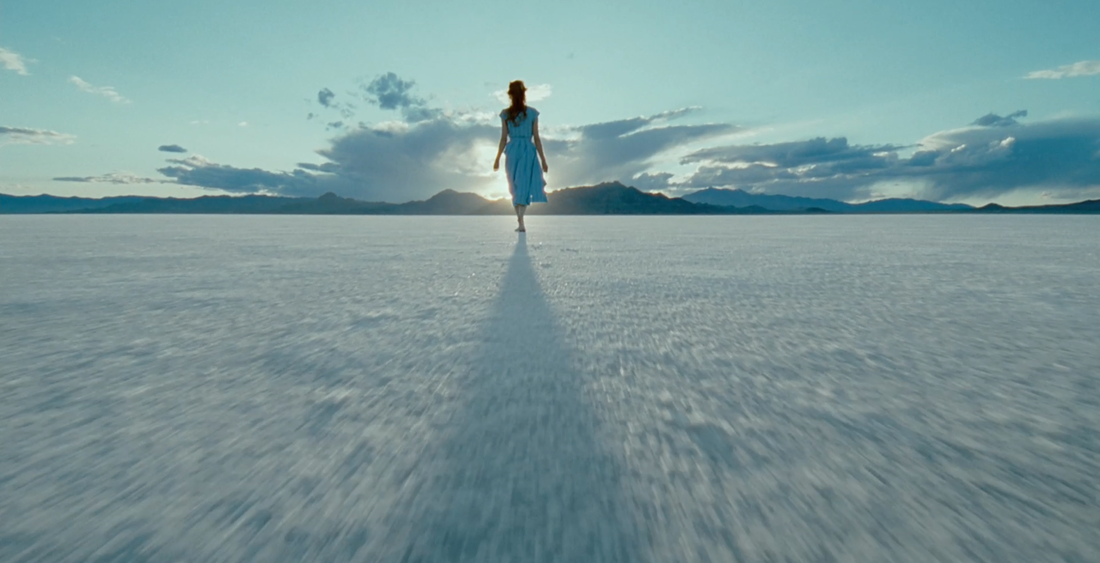Having grown up in the church environment my entire life, I had the opportunity to view several Christian films on various activity nights for the youth and during the occasional change-of-pace Sunday school class. However, as I got older and more interested in film, I gradually found myself resenting these Christian films and I wasn’t sure why, since all of them had explicitly clear Christian messages. I now realize that the majority of this dissatisfaction can likely be attributed to the reality that most Christian films contain inherently agenda-driven plots and forced dialogue, which hinders the plot from developing organically. Moreover, the notion of sin existing in the world is typically glossed over in a very “G-rated” fashion that stubbornly underscores the severity of its nature. With that said, Christian films usually misrepresent the reality of our fallen world and preach the Christian message in a contrived manner.
For the most part, the language of film excels in the presentation of metaphors. However, many Christian filmmakers tend to overlook this characteristic of the medium, choosing instead to dictate their message in a manner that enables viewers to watch the film without needing to think critically or with discernment. Not only does this decision cast aside an inherent strength of the medium that could be used to more effectively convey the film’s intended message, but it also creates a very dangerous scenario. By allowing viewers to watch their films without the need for much thought processing, Christian filmmakers tend to enable viewers to put their guard down and blindly receive what they are being told, which could promote bad theology, but more importantly, it encourages us to embrace a rather shallow understanding of God. This subsequently may result in an inadequate exploration of deeper questions relating to who God is, what it means to have Christian faith, and how people of faith interact with the world around them.
Contrast this with the fact that Jesus began many of his parables with the phrase, “The kingdom of God is like…” Ultimately, by stating their message outright, Christian filmmakers often prevent their audience from making their own, unique connections that allow them to better understand the complexity of heavenly principles. Moreover, to suggest that our knowledge of God and Christian principles can be boxed up in a completely ascertainable package, seems extremely naïve to me, and really diminishes the fact that certain aspects of God are too large to be fully grasped by the human mind. For this reason, films like The Tree of Life (Malick, 2011), an impressionistic and personal work that wrestles with questions pertaining to the manner in which we interact with God, will always be more valuable to my understanding of who God is than films like Left Behind (Sarin, 2000), which seeks to cast its own interpretation of the rapture, an event described in Revelation where God calls all those who have been saved to Heaven while all those who have not repented of their sins remain on Earth. Ultimately, the key difference between these films is how much is dictated as “truth” to the viewers: whereas The Tree of Life leaves everything very open-ended and makes our relationship with God something more personal and abstract, Left Behind presents us with a very confined and concrete interpretation of God that doesn’t allow much room for faith to function as a unique and personal value.
Following this point, Christian filmmakers tend to see and portray the world how they want it to be, which prevents such films from wrestling with tough questions. As I have communicated to several people when speaking on this topic, if you paint an image of the world as a place where we can elevate our conduct and ourselves to the point of perfectly successful living, why would there be a need for a savior? By making their protagonists exhibit inhumanly good characteristics, Christian films largely fail to succinctly capture the rift in our union with God as a result of original sin, which in my opinion is tantamount to them understating the importance of seeking redemption.
In summation, I would like to clarify that this post should not be taken as a blanket generalization attacking all films directly labeled as Christian, because films such as The Passion of the Christ (Gibson, 2004), which depicts the last few hours of Jesus’ life on Earth, can be extremely valuable to both Christianity and the world of cinema. Instead, this post should be received as a warning against the dangers that can come from blindly accepting the message of Christian filmmaking as total truth, while believing that films outside of the genre can shed no light on Christianity. If we believe that all truth is God’s truth, and all beauty is God’s beauty, then we should be able to derive elements of God in just about any movie that we see. Moreover, through the act of viewing film, we should be forced to participate and encouraged to derive our own personal beliefs about God, rather than have them spoon-fed to us in a neatly wrapped package. For this reason, I believe that movies that fall under the Christian film genre can be a bit dangerous and pretentious, as they tend to inadequately portray a picture of a God that transcends the grasp of human comprehension.


 RSS Feed
RSS Feed
